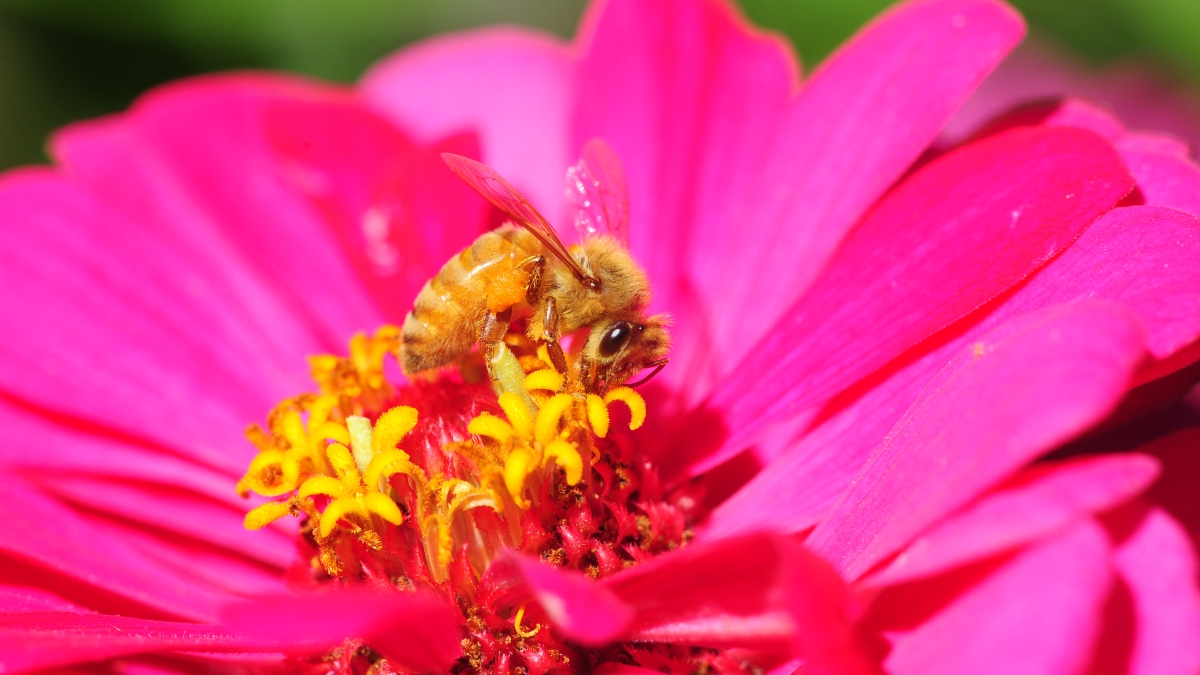Visiting author links bees, environment and human communication

Mark Winston, a nationally renowned scientist, educator and author, is coming to Arizona State University Jan. 28-29 to host two special events for the public.
On Jan. 28, Winston shares the stage with Provost Robert E. Page, Jr. to talk about bees, books and education in a free-wheeling conversation. This interactive event, which probes the heart of what a research university does, takes place at 4 p.m. in the Alumni Lounge in the Memorial Union on the Tempe campus.
The second event is a signing and reading from Winston’s newest book, “Bee Time: Lessons from the Hive,” at 7 p.m. on Jan. 29 at Changing Hands Bookstore in Tempe. The book, published by Harvard University Press, covers the myriad lessons people and communities can learn from honeybees and wild bees – lessons that are particularly vital today, as threats to bees pose similar challenges to our own communities.
Ranging from a discussion of colony collapse disorder to agricultural management, sustainability, mead and honey, Winston’s work will engage beekeepers, environmentalists, gardeners, farmers, urban planners and others interested in the natural history of honey bees and their relationship with humans.
The event is hosted by ASU and Urban Farm.
This long-time fascination with honey bees links Winston with ASU Provost Page, whose own research in the School of Life Sciences spans behavior, population genetics and evolution of complex social behavior of honey bees.
In addition to being part of the international consortium that published the genome of the honey bee, Page is a highly cited author in plant and animal science, with more than 230 research publications. He also recently penned “The Spirit of the Hive” (Harvard University Press, 2013), which examined the self-organizing regulatory networks of bees.
Winston believes that bees have “something to tell us about communication, about the power of collaboration and the importance of focus and presence in daily life.” At Simon Fraser University in Vancouver, Canada, Winston’s studies led him to found the Semester in Dialogue program. The program brings groups of students from various disciplinary backgrounds together for a semester-long project impactful in the Vancouver area.
This work first led Page, George Justice, dean of humanities in the College of Liberal Arts and Sciences, and Frederick Corey, vice provost for undergraduate education, to invite Winston to ASU in June 2014. He came to present his work and lead faculty workshops on infusing principles of dialogue into a diverse array of ASU educational programs.
In addition to his public events this January, Winston will follow up with the ASU faculty teams established in June on the Downtown, West and Tempe campuses.
“Bees can be the richest of guides to the most personal understandings about who we are and the consequences of the choices we make in inhabiting the environment around us,” writes Winston, whose work has appeared in numerous books and commentary columns for the Vancouver Sun, The New York Times and other publications, in addition to Canadian Broadcasting Corporation and National Public Radio.
His research, communication, and dialogue achievements have been recognized by many awards, including the Champion for a Healthy Community Award; British Columbia Gold Medal in Science and Engineering; Manning Award for Innovation; and Queen Elizabeth II Diamond Jubilee Medal for excellence in higher education.